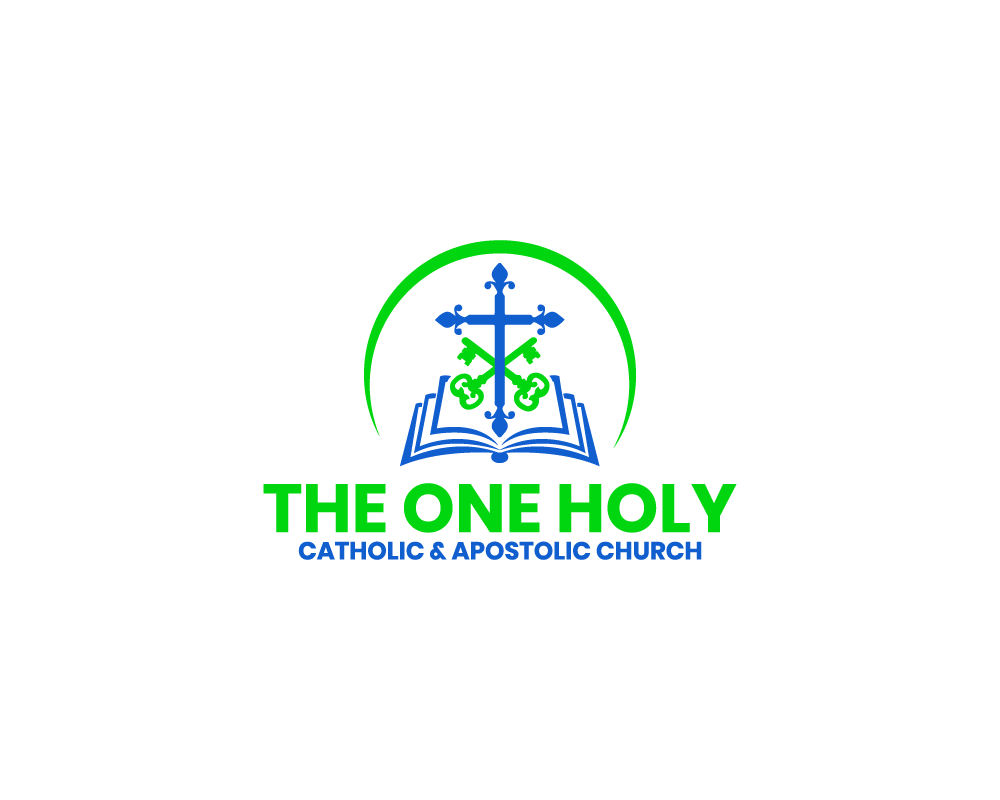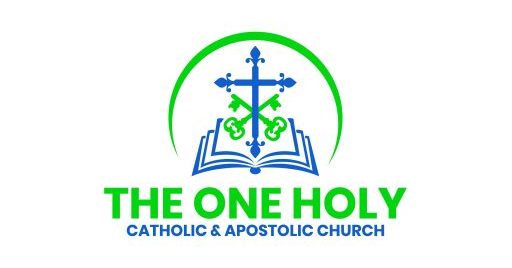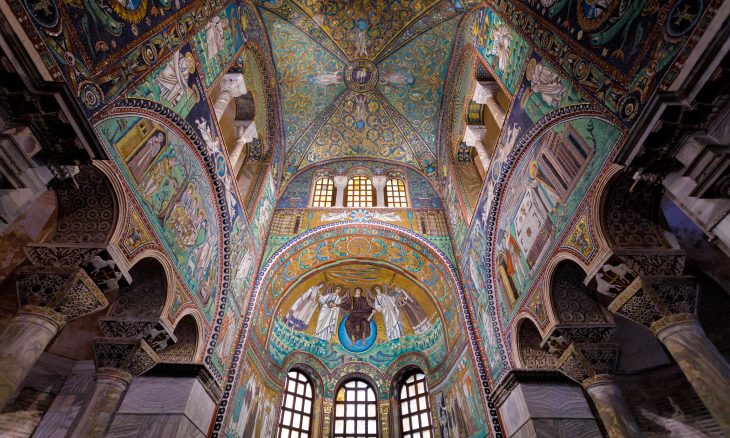Along with its Basic Beliefs
Getting to know Justinian of Arizona on a personal level
The One Holy Catholic & Apostolic Church was started in the West but followed the dogmas accepted by all Eastern Orthodox Churches, with a vision of an Orthodox Church originating from the West. Justinian of Arizona formed The One Holy Catholic and Apostolic Church. One desire of Justinian of Arizona is to fund and build a gigantic monastery in the desert of Arizona. To make a church for the people more remarkable than that of Hagia Sophia. The vision of creating a colossal monastery and Church in the desert, more significant than that of the famous Hagia Sophia in Istanbul, is undoubtedly ambitious. Such a project would require substantial resources and support from within and outside the Church. It can certainly be accomplished if the Lord wills, but the Lord has yet to reveal to Justinian of Arizona that such a thing will be fulfilled in his lifetime or even at all. Until that day, Justinian of Arizona hopes to see it come to pass. A new Church greater than that of Hagia Sophia for the Church to again worship in.
For now, Justinian of Arizona focuses on building and expanding The One Holy Catholic and Apostolic Church, bringing the rich ancient traditions of the East to the West, and incorporating them into Western culture. Justinian of Arizona believes each culture should have access to a church with ancient roots in fellowship with other old churches but linked with their cultural backgrounds.
Justinian of Arizona also hopes to see The One Holy Catholic and Apostolic Church impact the culture through politics. Continuing in the ancient tradition of Symphonia, Justinian of Arizona hopes to affect Political Leadership, along with Education, Healthcare, Social Welfare, National & Personal Security, Infrastructure, Economic Policy, and Environmental Regulation, along with many other sectors that affect our lives daily. The One Holy Catholic & Apostolic Church believes that the ancient doctrine of Symphonia requires our involvement in things beyond the doors of our church building.
How does this Church differ from other Eastern Orthodox Churches?
Dogmatically The One Holy Catholic and Apostolic Churches’ teachings do not differ from other Eastern Orthodox Churches. The dogma of the Church is the seven ecumenical councils, and it does differ in liturgy or doctrines like many other Orthodox churches do. But these are minor differences among Orthodox churches and do not consist of things that would cause communion severance.
Liturgical practices: While the Orthodox Churches share a common liturgical tradition, there are variations in how worship is conducted. For example, some churches may use different liturgical languages or musical styles. Originating from the United States, it is natural that The One Holy Catholic and Apostolic Church has its liturgical practices exercised in English. Otherwise, The One Holy Catholic and Apostolic Church are in sync with the liturgical expressions of the Holy Mountain.
Theological emphases: Although the Orthodox Churches share many fundamental theological beliefs, there are some differences in emphasis and interpretation. For example, the Greek Orthodox Church may emphasize the philosophical tradition of the Hellenic world, while the Russian Orthodox Church may have a stronger emphasis on monastic spirituality. The One Holy Catholic & Apostolic Church attempts to unite these in one cohesive emphasis.
Canonical structures: Each Orthodox Church has its own governance and hierarchical structure. While all Orthodox Churches recognize the authority of the Ecumenical Patriarchate of Constantinople, some also have their independent patriarchates or autocephalous churches. The One Holy Catholic & Apostolic Church is no different. Justinian of Arizona is the Patriarch of The One Holy Catholic & Apostolic Church.
Cultural and historical backgrounds: The various Orthodox Churches have evolved within different cultural and historical contexts, which has impacted their traditions and practices. Because The One Holy Catholic and Apostolic Church originated in the West, its cultural background differs from the other Eastern Churches.
Does The One Holy Catholic & Apostolic Church have a Bible Canon?
The One Holy Catholic & Apostolic Church has a canon of Scriptures but differs slightly from the ancient Church in Rome. The One Holy Catholic & Apostolic Church recognizes the same 27 books of the New Testament as the ancient Church in Rome, but its Old Testament canon includes several additional books, collectively known as the Deuterocanon. The inclusion of these books is based on the Septuagint, a Greek translation of the Hebrew Scriptures that was widely used in the early Church. As the Eastern Orthodox Church Fathers believed that the Septuagint was divinely inspired, they accepted the additional books as part of the canon. The same is true for Justinian of Arizona and The One Holy Catholic & Apostolic Church.
In his book “The Orthodox Church,” Timothy Ware explains that the canon of the Church “is not a list of books the Church has selected for herself, but rather a recognition of those books which she has always received from the beginning as inspired.” This means that the canon is not the result of a formal decision-making process but instead reflects the tradition and practice of the early Church.
One example of the early Church’s recognition of the canon comes from St. Athanasius, a fourth-century bishop, and theologian. In his Festal Letter, Athanasius lists the books of the Old and New Testaments that he considers to be authoritative. His list matches the current canon of The One Holy Catholic & Apostolic Church. Athanasius writes, “These are fountains of salvation, that they who thirst may be satisfied with the living words they contain. In these alone is proclaimed the doctrine of godliness. Let no man add to these, neither let him take ought from these.”
In summary, The One Holy Catholic & Apostolic Church does have a canon of Scriptures, although it differs slightly from the ancient Church of Rome canon. The canon is based on the Septuagint and reflects the tradition and practice of the early Church. The Church Fathers recognized the canon as authoritative, and their writings provide evidence of the Church’s acceptance of the Scriptures.
What are some of the other differences?
Perhaps one thing that sets The One Holy Catholic and Apostolic Church apart from other Churches is our focus is not just on the Spiritual. Because man comprises body, soul, and spirit, the Church should also be involved in those three areas.
Human beings have two great tools for navigation in this world: our soul and our spirit. The soul enables us to investigate, question and analyze through scientific and philosophical inquiry. At the same time, our spirit allows us to access eternal truths about the divine or the innermost essences of all things. Unlike reasoning, the spirit has the power of intuition that helps us to perceive things directly without any logical deductions. According to St Isaac, the Syrian, this instinctive cognition is called “simple cognition.” The spirit transcends beyond our aesthetic emotions or reasoning powers, making it a superior force connecting us to higher realms of knowledge.
Human beings are uniquely equipped with a rational soul and spiritual intellect, allowing us the extraordinary power of self-determination and moral freedom. Unlike animals who act on pure instinct, we possess a sense of good and evil and the ability to make informed, conscious decisions. Our capacity for choice sets us apart and empowers us to shape our destiny. (Our Goal is to be shaped by the Potter)
Many Fathers have different approaches when describing man’s nature. While some recognize the unity of body and soul, others take it a step further by including the spirit as the highest aspect of the soul. In our current age, however, the threefold scheme provides a more accurate and enlightening understanding of human nature. This is especially important since many people are unaware of their spiritual intellect and often confuse the soul and spirit. By recognizing the tripartite nature of man, we can gain a deeper understanding of ourselves and our relationship with the divine.
The foundation of Western culture and education centers heavily around honing our logic and aesthetics, neglecting the vital aspect of our spiritual selves. It’s easy to forget that we’re not just a collection of thoughts and emotions but also possess a spirit. Unfortunately, many today have lost touch with this crucial element, resulting in feelings of restlessness and despair. It’s time to reconnect with our higher selves and bring balance to our lives.
We feel that we should not be engaging with just the Spirit but also the body and the soul.
The Body
The One Holy Catholic and Apostolic Church have always had a deep respect for the natural world and the healing potential of the natural remedies found within it. The use of natural treatments and alternative therapies has been practiced for thousands of years and is deeply rooted in the traditions of many cultures worldwide.
Ancient medicine, including herbalism, is based on the belief that plants and other natural substances have powerful healing properties. Many of the plants and herbs used in ancient medicine are still used today, and modern science has validated their effectiveness. The Church recognizes the value of these ancient practices and encourages its members to explore the benefits of natural remedies alongside modern medicine.
While modern medicine has significantly advanced in treating diseases and prolonging life, it has also brought new challenges and limitations. The over-reliance on prescription drugs and invasive procedures has led to many adverse side effects. Additionally, many modern treatments can be costly and not accessible to everyone. As a result, the Church encourages its members to consider all options regarding health and wellness.
The Church recognizes that using natural remedies and alternative therapies should be done under the guidance of healthcare professionals and not to replace or delay necessary medical treatments. However, many natural remedies can complement modern medicine and provide additional benefits, such as improving overall health and reducing stress. For example, certain herbal teas can help calm the nervous system and promote relaxation, while others can help with digestion, circulation, and immune system support.
Furthermore, the Church recognizes the importance of preventative measures in maintaining good health. Lifestyle factors, such as a healthy diet, regular exercise, and stress management, significantly promote overall health and well-being. The Church encourages its members to adopt healthy habits and to prioritize self-care.
The Church’s commitment to natural remedies and alternative therapies is not limited to just herbalism. Other alternative treatments, such as acupuncture, massage, and meditation, are also recognized as beneficial for overall health and well-being. These therapies have been shown to improve circulation, relieve stress and anxiety, and promote a sense of well-being.
In conclusion, the One Holy Catholic and Apostolic Church value the ancient medical and therapeutic practices passed down through generations. It recognizes the potential benefits of natural remedies such as herbalism and other alternative medicine. The Church encourages its members to consider all options regarding health and wellness and to make informed decisions based on their unique needs and circumstances. By embracing natural remedies and alternative therapies alongside modern medicine, the Church can help promote health and well-being for generations to come.
The Soul
The One Holy Catholic and Apostolic Church believe that the human soul is an essential aspect of our being. According to the teachings of the Church Fathers, the human person is a composite of body and soul, and the soul is the source of human consciousness, will, and morality. The Church emphasizes the importance of the soul’s transcendence and the need to connect with God, as the ultimate purpose of the human person is to achieve union with God.
Modern psychology has made significant advances in understanding the human mind and behavior. However, it often overlooks the spiritual dimension of human nature. The Church’s tradition of biblical and spiritual psychology provides a comprehensive and coherent framework for understanding the human person and the workings of the soul. The Church recognizes the importance of spiritual growth and transformation through asceticism, prayer, and the sacraments.
Psychedelic therapy has gained popularity in recent years as a psychological and spiritual therapy tool. While it has shown potential benefits, it also carries significant risks, including the possibility of opening oneself up to demonic influences and delusions. The Church encourages its members to approach psychedelic therapy with caution and discernment and always within the context of the Church’s teachings and practices.
The Church also recognizes the value of modern therapeutic practices, including cognitive-behavioral therapy, interpersonal therapy, and other evidence-based approaches. These therapies can help individuals overcome anxiety, depression, and other mental health issues.
Shamanic practices have been used for centuries to promote healing and spiritual growth. The Church recognizes the value of shamanic practices but only from a Christian perspective and always within a church setting. The Church encourages its members to approach these practices with discernment, as they can be powerful tools for healing and transformation.
To summarize, the One Holy Catholic and Apostolic Church value the ancient therapeutic practices passed down through generations and modern therapeutic practices developed through scientific research. The Church encourages its members to approach all forms of therapy with discernment and always within the context of the Church’s teachings and practices. By embracing a holistic approach to healing, the Church can help promote health and well-being for all its members.
Spirit
The One Holy Catholic and Apostolic Church teach that the human person is a composite of body, soul, and spirit. According to the teachings of the Church Fathers, the body is the material aspect of the human person, the soul is the principle of life and consciousness, and the spirit is the transcendent aspect that enables the human person to connect with God.
The spirit is often described as the highest aspect of the human person and the source of our deepest desires and longings. It is the part of us that seeks a connection with the divine and yearns for spiritual growth and transformation. The spirit enables us to experience God’s presence and become more like Him.
The Church Fathers believed that the spirit is not something that is added to the human person but is an essential aspect of our being. The spirit is not separate from the soul but is intimately connected to it. The soul is the bridge between the material and the spiritual aspects of our being, and the spirit enables us to transcend our material nature and connect with the divine.
The Church emphasizes the importance of spiritual growth and transformation through prayer, asceticism, and the sacraments. The sacraments are seen as powerful means of connecting with God and receiving His grace, particularly the sacraments of baptism and the Eucharist. Through these sacraments, we receive the gift of the Holy Spirit, which enables us to live a life of holiness and to become more like Christ.
The Church also recognizes the importance of cultivating the spirit through spiritual disciplines such as meditation, contemplation, and spiritual reading. These practices help us to deepen our relationship with God and to become more attuned to the promptings of the Holy Spirit.
In conclusion, the One Holy Catholic and Apostolic Church teach that the human person is a composite of body, soul, and spirit. The spirit is the transcendent aspect of our being that enables us to connect with God and to become more like Him. The Church emphasizes the importance of spiritual growth and transformation through prayer, asceticism, sacraments, and spiritual disciplines such as meditation and contemplation. By nurturing our spirit, we can deepen our relationship with God and experience His love and grace in our lives.



